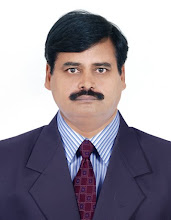Dear All
ABSTRACT
Keywords: Water Harvesting, Rehabilitation, Sanitation, Empowerment, Inclusion, Persons with Disabilities, Sustainability, Quality of Life.
The access for water in terms of its quantity and quality is the key factor in keeping people poor, unhealthy and further creates barriers in improving their livelihoods. When this situation is complex with the normal people then its impact on the persons with disabilities creates vulnerable situations. Water is the additional factor to poverty, disability and development which are cause and consequences of each other. As a result, the access for water literally controls the health and development of the people as well as the area at all levels in general and particularly in the rural villages where the water storage bodies are less and ineffective / insufficient.
The people get affected with poor access for water and sanitation by way of disability and while under going the training and rehabilitation. In the disability area, better access for water and sanitation is necessary for the prevention of disability and to rehabilitate the persons with disability effectively for better sustainability with quality of life (QOL).
The present study deals with the awareness created for the better use and management of water and sanitation facilities which is adopted as a module in the area of disability through community based approaches. Suitable measures and models adopted for the rainwater harvesting improved the access for water and thus for sanitation. This was done in the selected villages of Krishna, Guntur, Medak, Mahbubnagar, Ranga Reddy and neighbouring districts of Andhra Pradesh with need based strategies. In addition, the training provided to stakeholders like: anganwadi workers, health workers, professionals, persons with disabilities and their parents / family members, service providers / NGOs / DPOs / CSO and community members yielded for attitudinal changes in understanding the need and gravity of the situation. The impact was positive and significant in the prevention of disabilities and rehabilitation of the persons with disabilities. The module on water and sanitation in the curriculum of community based rehabilitation improved the capacities of the professionals to implement the same at grass root environment. The empowerment model of persons with disabilities has helped them to be part of the community as an inclusive strategy. In view of the United Nations Convention on the Rights of the People with Disabilities (UNCRPD), its obligation for the amendment of Indian Disability Acts and in the whole process of disability rehabilitation, access for water and sanitation is going to gain importance to work for the inclusion of persons with disabilities with right based approaches at all levels with better sustainability and quality of life.
Remarks: Abstract of the paper
Subscribe to:
Post Comments (Atom)

No comments:
Post a Comment